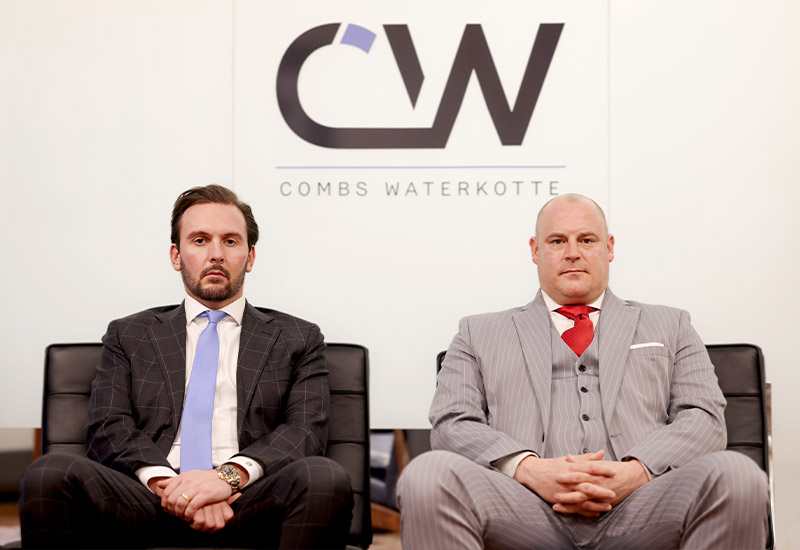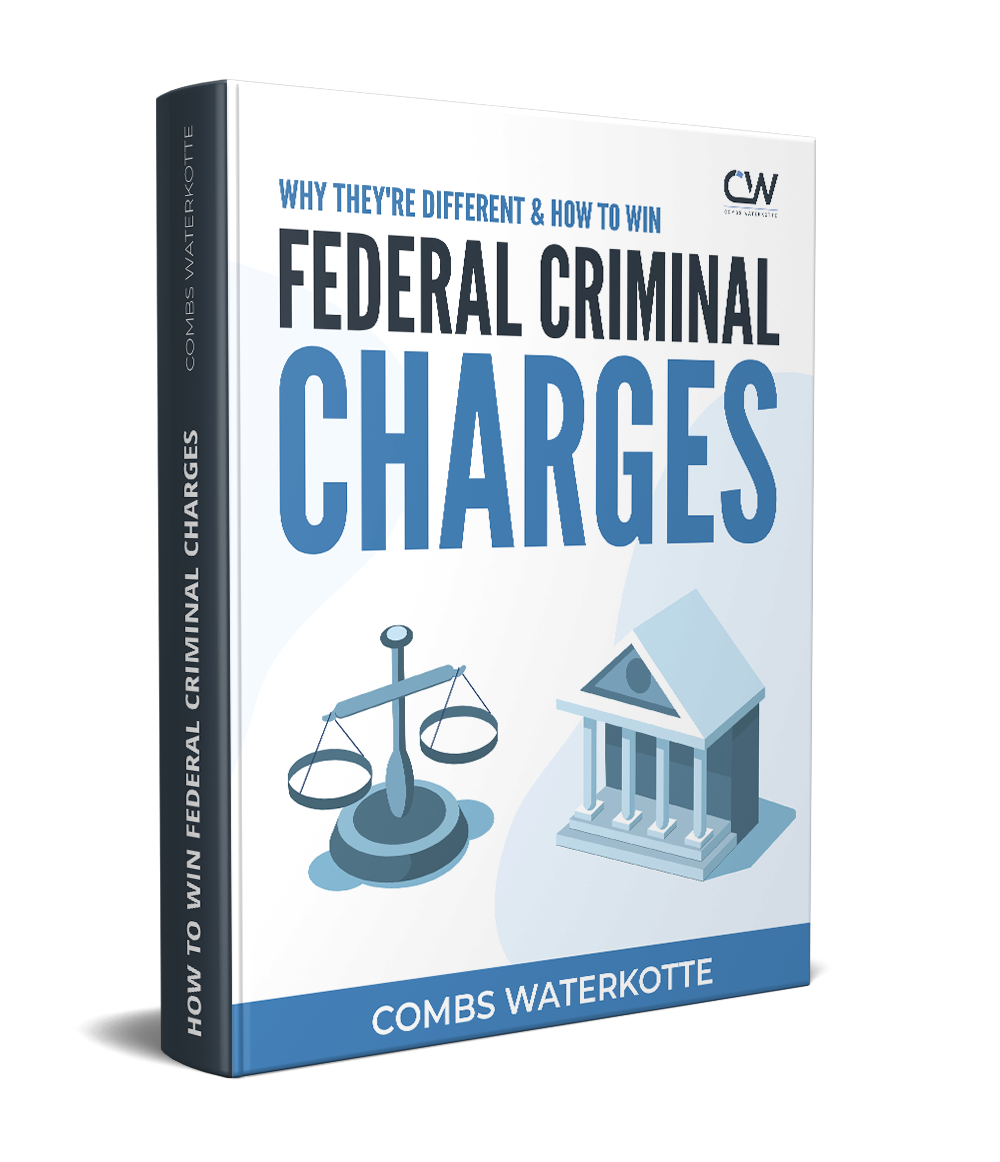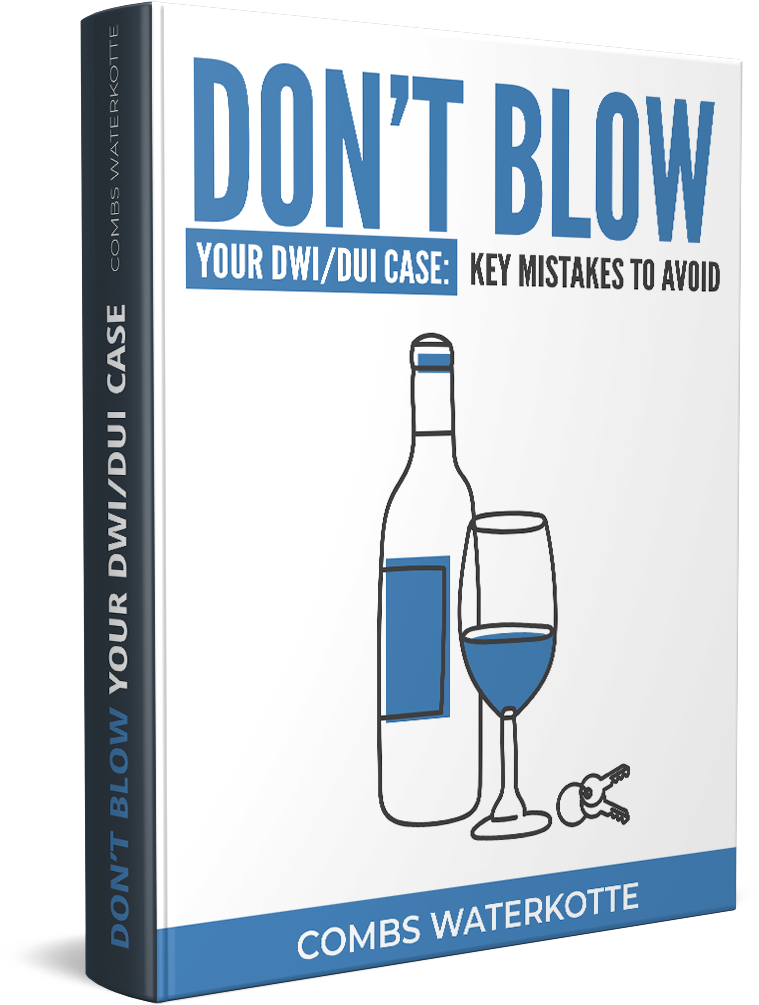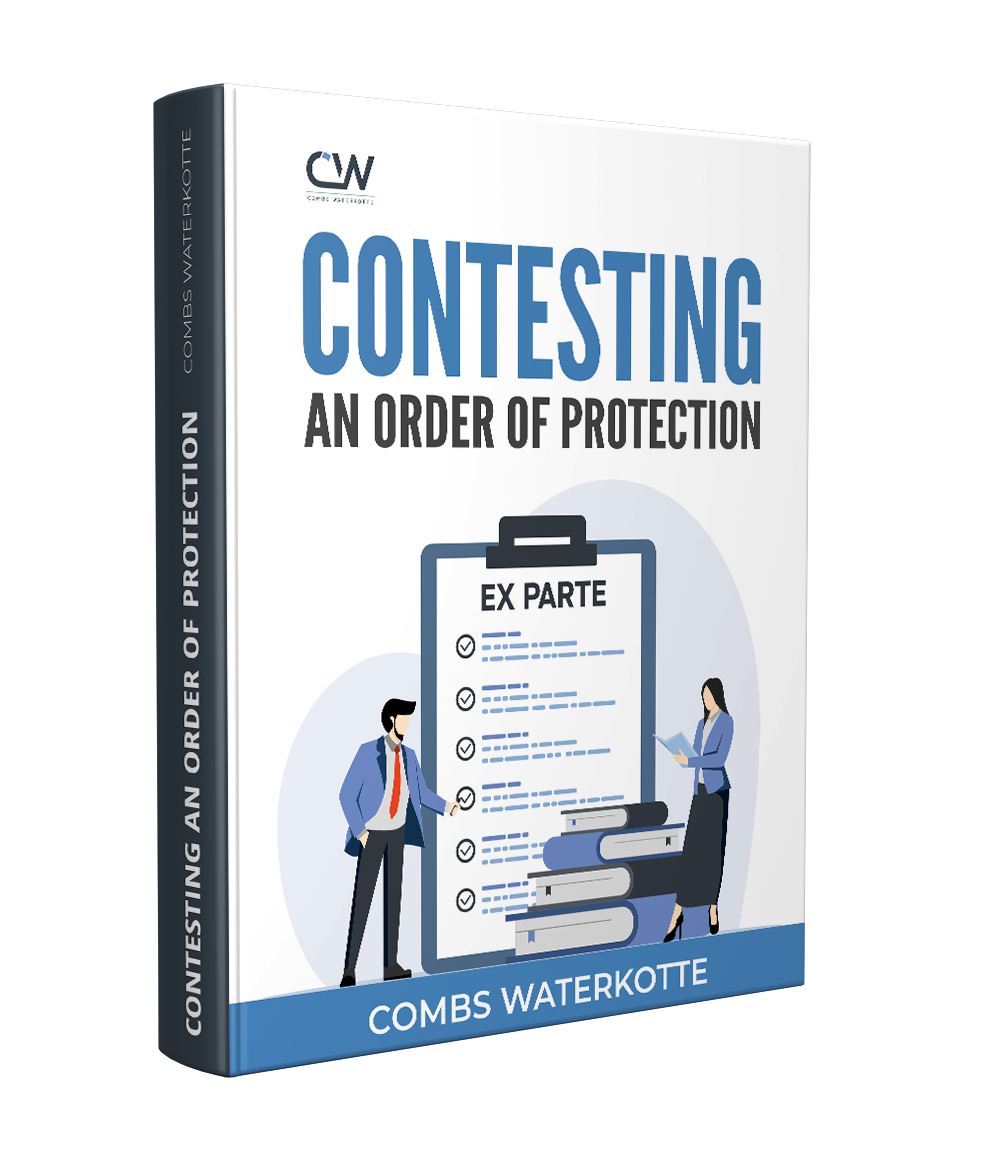What Is Federal Internet Fraud?
Federal internet fraud refers to any scheme to defraud others using the internet or electronic communications. Prosecuted as wire fraud under 18 U.S.C. § 1343 and related statutes, these crimes can involve financial scams, identity theft, phishing, online auction fraud, or business email compromise schemes.
At Combs Waterkotte, our federal criminal defense lawyers in Missouri know how to challenge the government’s narrative and protect what matters most—your freedom and your future. We combine aggressive courtroom advocacy with strategic negotiations to deliver results for clients facing internet fraud allegations in Missouri’s federal courts.
Your future is on the line. We help Missouri residents just like you. Call Combs Waterkotte's federal internet fraud team right away at (314) 900-HELP or contact us online for a free, confidential consultation.
How Federal Internet Fraud Charges Work in Missouri
In order to charge you with federal internet fraud, the government must prove:
- That you intentionally engaged in a scheme to defraud or obtain money under false pretenses
- That you used electronic communications (email, websites, messaging apps, online platforms) as part of the scheme
- That the communications crossed state lines or impacted interstate commerce
Common Types of Federal Internet Fraud Charges in Missouri
Here are some common type of internet fraud cases our federal defense attorneys have been a part of, in both the St. Louis and Kansas City Federal District Courts:
- Wire Fraud (18 U.S.C. § 1343): The most common internet fraud charge. Covers almost any fraudulent use of electronic communications.
- Identity Theft (18 U.S.C. § 1028): Using someone else’s personal information to commit fraud or obtain money.
- Access Device Fraud (18 U.S.C. § 1029): Credit card fraud, stolen account numbers, or using hacked login credentials.
- Computer Fraud (18 U.S.C. § 1030): Unauthorized access to computers or networks to commit fraud.
- Business Email Compromise (BEC): Impersonating executives or vendors to redirect funds.
- Online Investment Fraud: Ponzi schemes, cryptocurrency scams, and pump-and-dump schemes conducted online.
- Online Auction & Marketplace Fraud: Misrepresenting products or failing to deliver goods sold online.
How Federal Internet Fraud Is Investigated
Internet fraud cases in Missouri often involve multiple federal agencies, including the FBI, Secret Service, FTC, and DOJ Cybercrime Division. Investigations may include:
- Tracking IP addresses, online accounts, and cryptocurrency wallets
- Using subpoenas to obtain email, server, and ISP records
- Executing search warrants to seize computers and devices
- Interviewing alleged victims, banks, and payment processors
- Deploying undercover agents in sting operations
By the time you are charged, the government has often compiled a massive amount of digital evidence. Our federal internet fraud attorneys know how to challenge the validity, chain of custody, and interpretation of this data.
Federal Case Timeline for Internet Fraud in Missouri
Here’s what to expect if you are investigated or charged for internet fraud in the St. Louis or Kansas City areas, or anywhere else in Missouri:
Step 1: Federal Investigation
FBI or Secret Service agents quietly collect data for months, issuing subpoenas and search warrants. Contacting a federal internet fraud defense lawyer early may stop the case from becoming an indictment.
Step 2: Grand Jury & Indictment
Prosecutors present evidence to a federal grand jury, which can issue an indictment. This is when charges formally begin.
Step 3: Arrest & Arraignment
You are arrested or summoned to federal court. Your federal defense attorney in Missouri enters a plea and argues for release conditions or bond.
Step 4: Discovery & Pretrial Motions
We review the government’s evidence, file motions to suppress unlawfully obtained data, and prepare your defense strategy.
Step 5: Negotiations & Trial Preparation
We use trial readiness to negotiate for reduced charges or dismissal. If no deal is reached, we prepare to present your case to a jury.
Step 6: Trial & Sentencing
At trial, the government must prove its case beyond a reasonable doubt. If convicted, we fight for the lowest possible sentence and explore post-conviction relief options.
Important: Federal prosecutors have a head start. They’ve likely been building their case for months. The sooner you involve the Combs Waterkotte federal defense team, the better chance we have to shape the outcome.
Impact on Business, Reputation & Finances
Internet fraud charges can devastate your life. This can include:
- Frozen bank accounts and seized assets
- Loss of employment or professional licenses
- Permanent damage to your reputation
- Massive financial restitution obligations
- Ineligibility for certain government programs or contracts
Penalties for Internet Fraud in Missouri Federal Court
Internet fraud is almost always charged as a felony in federal court. Possible penalties include:
- Prison: Up to 20 years per count, and up to 30 years if the fraud affects a financial institution or disaster relief funds.
- Fines: Hundreds of thousands of dollars, often based on the amount of loss.
- Restitution: Mandatory repayment to alleged victims.
- Forfeiture: Seizure of assets connected to the alleged scheme.
- Permanent Record: A federal felony conviction can permanently impact employment, licensing, and housing opportunities.
Defenses Against Federal Internet Fraud Charges in Missouri
Our federal internet fraud attorneys carefully analyze and investigate multiple aspects of your charges to craft a strong defense. Some common strategies that could be used in your case include:
- Lack of Intent: Proving that any misrepresentation was accidental, not fraudulent.
- Unlawful Searches: Suppressing evidence obtained through illegal warrants or overbroad subpoenas.
- Duress or Coercion: Demonstrating you acted under threat or pressure from others.
- Mistaken Identity: Showing that someone else used your account, IP address, or device.
- Insufficient Evidence: Attacking the government’s ability to prove every element beyond a reasonable doubt.

Federal Internet Fraud FAQ
Can I be charged even if I didn’t profit?
Yes. The government only needs to prove intent to defraud, not actual profit.
Will I go to prison for internet fraud?
It depends on the amount of loss, your criminal history, and the strength of your defense. Skilled legal representation can often reduce or avoid prison time.
Can the government seize my computer and accounts?
Yes. Federal agents often seize digital devices and freeze accounts during the investigation. We can fight to limit seizures and get property returned.
What if someone else used my IP address?
This is a common defense. We work with forensic experts to prove mistaken identity or unauthorized access.
Do most internet fraud cases go to trial?
No. Many are resolved through plea agreements or dismissals. Our trial-ready posture helps us secure better deals when trial isn’t in your best interest.
Why Choose Combs Waterkotte for Your Internet Fraud Defense
Choosing the right attorney for a federal internet fraud case can be the difference between freedom and years behind bars. At Combs Waterkotte, we combine aggressive advocacy with a strategic, client-focused approach to give you the strongest possible defense in Missouri’s federal courts.
- Personalized Defense: We take the time to understand your goals, explain every option, and keep you informed every step of the way.
- Prepared for Battle: Every federal internet fraud case is treated like it’s heading to trial, giving us leverage to secure better plea offers or dismissals.
- Powerful Resources: We work with top forensic accountants, investigators, and industry experts to dismantle the government’s fraud case against you.
- Proven Federal Experience: Our decades of trial work mean we know the judges, prosecutors, and sentencing trends in Missouri’s federal courts.
Bottom Line: If the federal government is coming after you, time is critical. Put a Missouri federal internet fraud lawyer on your side who knows how to fight back. Call us now at (314) 900-HELP or reach out online.


































